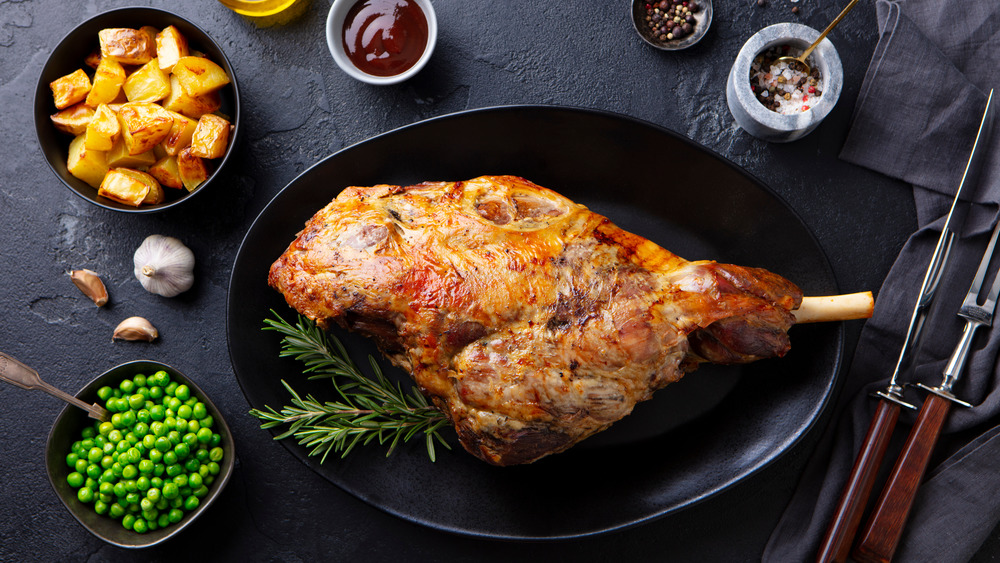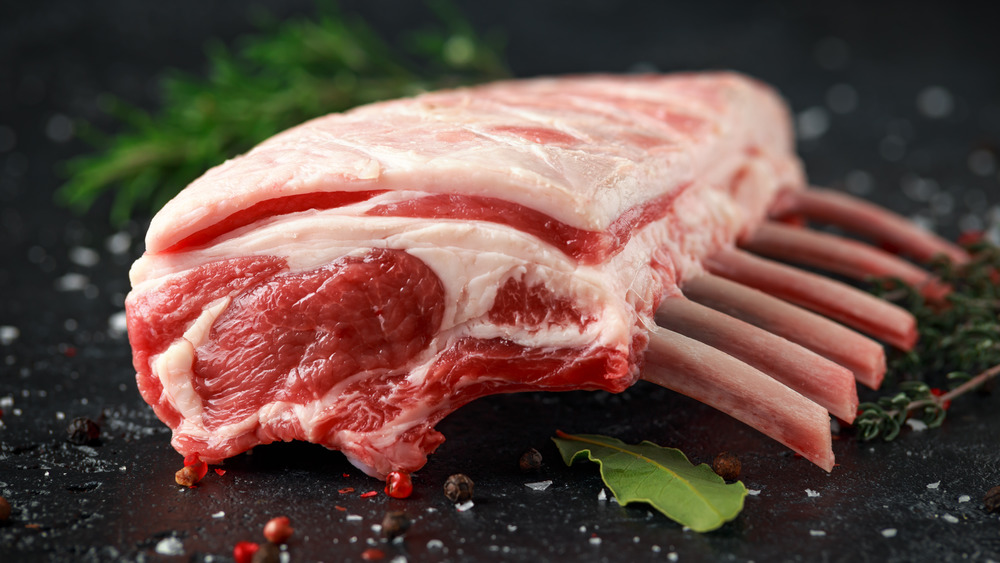The Real Reason People Eat Lamb On Easter
When you want to prepare a traditional Easter dinner, no table spread is complete without some kind of meat. Roasts, glazed hams, and lamb have graced our tables for years, and have established themselves as foods we associate with Easter (via Southern Living). However, have you ever wondered why these foods have such a prominent role in the festivities? A large reason we've developed a traditional Easter menu stems back to celebrating Lent and the need to give up certain foods (via The Spruce Eats). Lamb, the oldest meat dish associated with Easter, stems back to pre-Christian times and laid the foundation for our future menus. The consumption of the original roast lamb stems back to the first Passover Seder, with spice combinations and flavors varying based on where you eat this meal.
Lamb entered the traditional Passover menu thanks to the biblical story found in the book of Exodus, where Jews in Ancient Egypt had to smear lamb's blood on their doorposts to avoid a plague of God (via History). When early Jews — who celebrated Passover by eating lamb to mark this occasion — converted to Christianity, they took this meal with them to celebrate Easter. The association of Jesus as "the lamb of God" also may have helped tie the consumption of this meat to Easter. Furthermore, lamb's availability as an accessible meat after winter months with no livestock to slaughter would also encourage our ancestors to serve up a few lamb legs to celebrate.
A traditional Easter roast with a long history
The significance of serving up lamb as a nod to early Jewish religious observances differs based on who you ask. According to Food & Wine, Ashkenazi Jews historically did not eat lamb at Passover and see consuming this meat as an equivalent to eating a sacrifice for God. Instead of violating this taboo, this religious group might celebrate with brisket in place of lamb. On the other hand, Sephardic Jews, who settled further westward, are allowed to eat lamb at Passover, as they see the day as a re-enactment of the events of the original Passover. But while this group can eat lamb during the celebration, they can't roast a whole lamb, due to a religious tenant.
This meat has thrived as a time-tested menu item for Easter for millennia, thanks to the original association with the biblical story of Passover. Next time you dig into a leg of lamb at your Easter dinner, you can take an extra serving of pleasure knowing the full story of why we see this meat on Easter spreads throughout the world.

